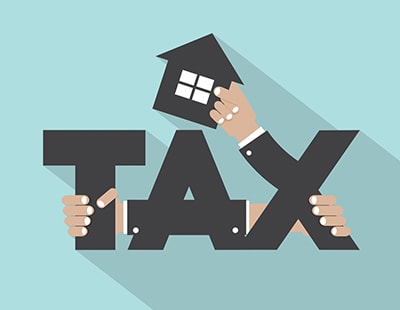The Budget could leave many property investors and landlords ‘between a rock and a hard place’, according to Apropos.
The letting firm believes that rumours the Chancellor is set to increase Capital Gains Tax (CGT) and Corporation Tax (CT) would impact on all asset classes but hit the property sector particularly hard.
Many investors and landlords have been placing their portfolios into companies in a bid to avoid being hit by the potential rise in CGT and limiting the impact of previous tax changes, but Apropos says they will simply be taxed more through the proposed higher increases in corporation tax.
Although short-term tax announcements will be made today, some other longer-term reforms will be held over. Instead, there is going to be a ‘tax day’ on March 23, where the government will issue consultation documents on some taxes and processes.
There is speculation that the CGT changes will be introduced as early as today to pre-empt any potential exit from the property market. If the predicted change to the rate of CGT rises in the Budget to match income tax rates, then higher rate taxpayers will see an increase from 28% to 40%.
This would mean that the annual gain for landlords, second homeowners and investors would be between 1.9%-2.2% per year. With a potential corporation tax increase from 19% to 24%, any expected savings from transferring assets into an incorporated entity would be lost.
According to David Alexander, joint chief executive officer of Apropos, raising taxes at the start of a recovery is a risky, and potentially harmful, way to fill the financial deficit.
“Landlords, second homeowners, and property investors are an easy target, but all tax rises come with the potential for unexpected consequences,” he says. “These changes might produce one-off upticks in tax but may encourage many more landlords, property investors, and second homeowners to transfer their investments elsewhere.”
Alexander says the Chancellor ‘not only risks killing investment in the UK property market and causing a shortage of homes for private renters but could create turmoil in the housing sector for years to come’.
“Targeting a major asset class like property runs the risk of skewing the market away from property and into other, less punitively taxed, investments. The outcome, therefore, could be reduced revenues, fewer properties in the private rented sector, and a disaffected group of landlords, investors, and second homeowners who feel betrayed simply because of their desire to invest in property.”
“Equally, if these proposed increases in CGT and CT are implemented solely on long-term letting, second homeowners, and property investors without appropriate amendments to the existing, more favourable, tax regime for short-term lettings and the furnished holiday lettings market then a serious anomaly will have arisen which could easily divert many properties toward the holiday market particularly this year with the predicted boom in staycations.”
He concludes: “Given that we are in the midst of an unprecedented emergency it is essential that major tax changes are not implemented in the short-term only to be regretted in the long-term. The big risk is that the Chancellor ends up seriously damaging the private rented sector, fails to substantially increase the tax take, flattens the wider property market, and ultimately ends up hurting the prospects of homeowners, landlords and tenants.”








.png)

.jpg)








Join the conversation
Jump to latest comment and add your reply
Time we got rid of that word "landlord".
Neither I or My company ate "Lords" - just simply owners
There will be an almighty collapse if civil servant experts with little real world knowledge carry on tweaking.
There has to be a mechanism to allow lesser folk to bridge the gap between impossible property owning and and living on the street or shanty towns. Letting is that bridge. Landlords can never charge more than their tenants earn. Its worse than that because rates have to be paid and councils have rights whereas landlords no longer seem to have any.
The biggest part of property investment is using property as a hedge against inflation via always increasing property prices. Only rent is a real profit with value. OK, its not that simple but if landlords are busted the whole pack of cards will fall down.
Please login to comment